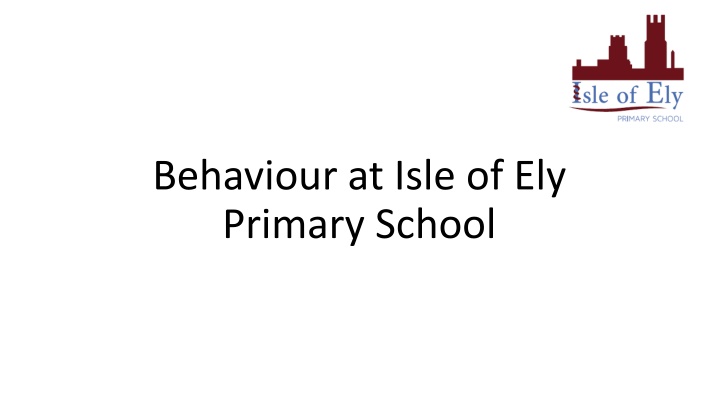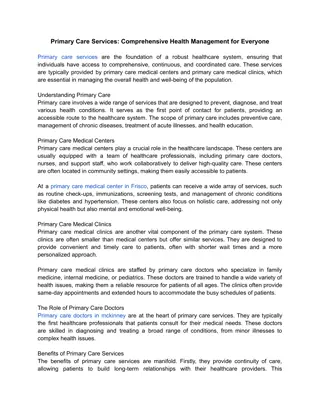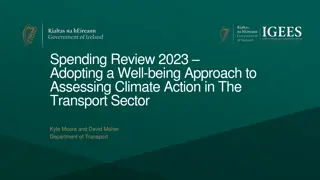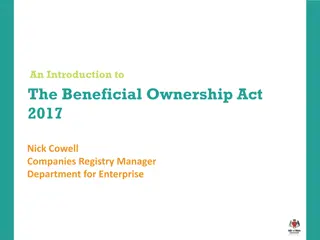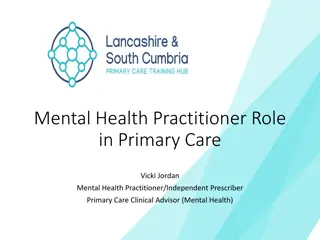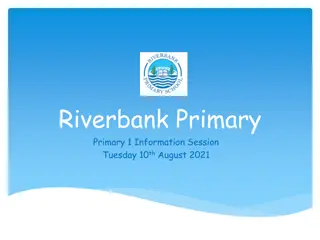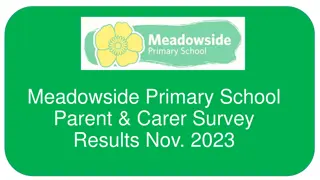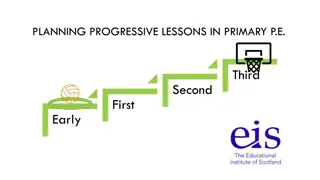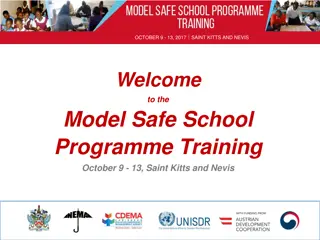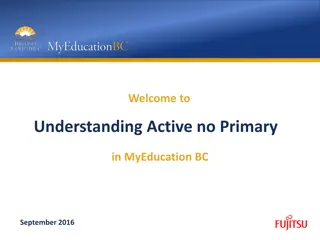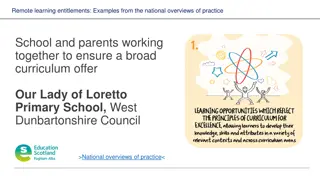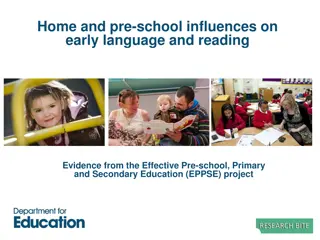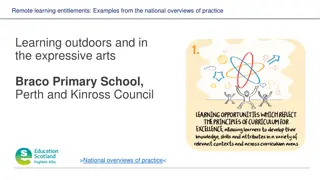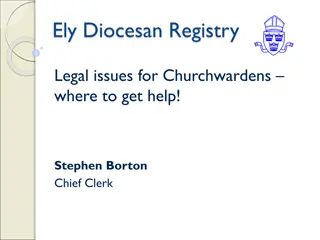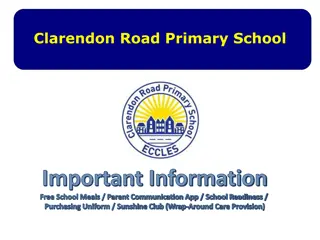Enhancing Well-being and Learning at Isle of Ely Primary School
This content provides insights into the initiatives undertaken at Isle of Ely Primary School to improve behavior, implement new policies, and adopt therapeutic approaches like the Cambridgeshire STEPS and THRIVE approaches. The school emphasizes equity, equality, and high standards to ensure every young person has equal opportunities for social and educational development. Training sessions, staff engagement with educational resources like books by Paul Dix, and the implementation of new school rules are highlighted.
Download Presentation

Please find below an Image/Link to download the presentation.
The content on the website is provided AS IS for your information and personal use only. It may not be sold, licensed, or shared on other websites without obtaining consent from the author.If you encounter any issues during the download, it is possible that the publisher has removed the file from their server.
You are allowed to download the files provided on this website for personal or commercial use, subject to the condition that they are used lawfully. All files are the property of their respective owners.
The content on the website is provided AS IS for your information and personal use only. It may not be sold, licensed, or shared on other websites without obtaining consent from the author.
E N D
Presentation Transcript
Behaviour at Isle of Ely Primary School
New policy Why did we need a new policy?
Research Therapeutic approach Cambridgeshire STEPS approach THRIVE approach When the adults change everything changes Paul Dix ~All staff have read this book
Cambridgeshire STEPS approach ~3 trained STEPS tutors in school ~Staff training day
STEPS The process of taking necessary steps to ensure that every young person is given an equality of opportunity to develop socially, to learn and to enjoy community life.
Oh bring back higher standards The pencil and the cane: If we want education Then we must have some pain. Oh, bring back all the gone days Yes, bring back all the past Let s put them all in rows again So we can see who s last. Peter Dixon
* Add equity and equality slide
THRIVE approach ~2 trained THRIVE practitioners ~Whole staff training ~Classes have been profiled ~Weekly THRIVE assemblies based on class need ~THRIVE lessons in class
THRIVE approach Thrive is a therapeutic approach to help support children with their emotional and social development. The Thrive approach offers practical strategies and techniques and is built around online assessments which identify children's emotional development and provides action plans for their individual needs.
Terminology Prosocial: Relating to or denoting behaviour which is positive, helpful, and intended to promote social acceptance and friendship. Antisocial: Unwilling or unable to associate in a normal or friendly way with other people.
The role of adults (including staff, parents, governors and community visitors) To promote an awareness of everybody s individual needs. To model pro-social behaviour and take pride in their school, their class, their work, their environment and their relationships with others. To treat children fairly, consistently and sensitively, demonstrating visible kindness. To celebrate and praise children s achievements, successes and efforts. To collaborate effectively to find solutions to antisocial behaviour. To actively teach children about prosocial behaviour. Antisocial: unwilling or unable to associate in a normal or friendly way with other people.
The role of children Be ready to learn. To show respect to other people and the school environment, acting in line with the school s values. To behave in a prosocial way so that they keep themselves and others safe.
Praise, Reward and Celebration We believe that learners should be praised for demonstrating prosocial behaviour in school. There are a number of ways to do this including: Recognition boards Children s names are displayed on a classroom board to show that they are following the school s rules. House points Each child is allocated a vertical House team when they join the school so that they are working with children in every year group, including their siblings. Points can be awarded for excellent work, prosocial behaviour and taking part in a range of school competitions. These points are collected each week and the totals presented in the Headteacher s celebration assembly. Celebration assembly Each week an assembly is held to celebrate children s achievements. Classroom staff decide upon a star of the week and this child is presented with a certificate from the Headteacher and their name is added to the whole school s Recognition Board .
Consequences and Sanctions Alongside Thrive, we also follow the Cambridgeshire STEPS programme which aims to recognise pro and antisocial behaviour, emphasising the need to reflect, repair and restore. Staff are trained to recognise the degree of seriousness and the kind of behaviour consequences that should be used. They must ensure that the consequences are reasonable, proportionate and necessary to adhere to the school rules of Be Ready, Be Respectful, Be Safe .
Educational consequences The goal for this is to stop a child s antisocial behaviour and support them in making prosocial choices. This involves helping to teach the child to learn from their behaviour. Example: Child running down the corridor is asked to come back and walk down the corridor at break.
Protective consequences The goal is to protect and therefore keep everyone safe including the child. Example: Child has break at a different time to his/her peers as has shown extreme antisocial behaviour.
Types of behaviour Difficult or dangerous behaviour? Difficult behaviour includes high anxiety behaviours, where there is not imminent danger such as swearing, pushing, kicking, spitting, shouting and throwing objects. Dangerous behaviour: Where someone or something is in imminent danger.
Protocol Difficult behaviour: 1. Remind and refocus. 2. Give the pupil limited choices ( this or this ). 3. Temporary removal from the activity (quick job / distraction). 4. Move pupil within the class. 5. Discuss possible consequences. 6. Send pupil to a partner teacher s classroom with work (refocus on return with positive reinforcement). 7. Talk Time sheet completed with class teacher and pupil. Dangerous behaviour: 1. Teacher to use the de-escalation script (SLT member on call if needed). 2. Provide a supportive environment for the pupil to calm. 3. Ensure other pupils are safe. 4. Once calm, undertake Talk Time with the pupils involved. 5. SLT member to review the incident with staff involved and determine consequences together. 6. Teacher to ensure educational and protective consequences are followed through. 7. Teacher to debrief with SLT. 8. Teacher or SLT member to inform the parent/carer of the incident and measure put into place to help their child learn.
Parental Involvement As a school we understand the importance of the partnership and communication with parents and therefore we will communicate with parents about the behaviour of their child when necessary at the end of the day. (Dependant on behaviour) If antisocial behaviour continues and more than 5 TalkTime sheets have been completed in a Half Term the teacher will meet informally with parents to discuss support strategies. If a further 3 TalkTime sheets have been completed or there has been dangerous behaviour parents will meet with Class Teacher and a member of SLT and/or SENDCO.
Individual plans Additional needs have Risk Management plans ~Shared with all staff members ~Scripts in place ~ Parental involvement
Monitoring Deputy for Inclusion keeps all Talktime sheets Monitored for triggers Consequences monitored
Impact Already seen an impact of increased behaviour Consequences are personalised Support put in place early
Next steps Children s perspective Continue to monitor Make adaptations where necessary Parental feedback
